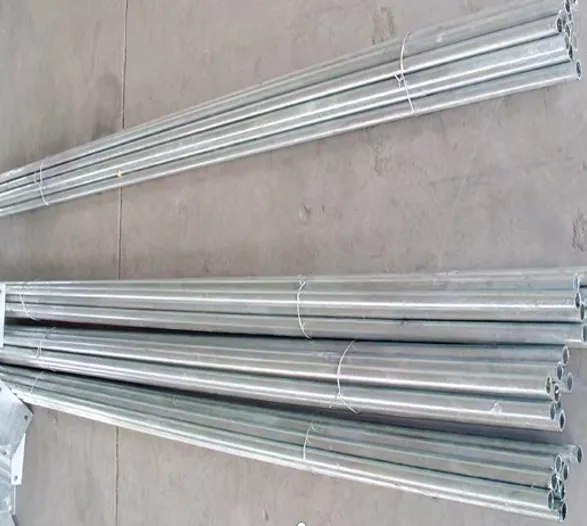loading...
- No. 9, Xingyuan South Street, Dongwaihuan Road, Zaoqiang County, Hengshui, Hebei, China
- admin@zjcomposites.com
- +86 15097380338
- Welcome to visit our website!
FRP Tanks for Efficient Water Treatment Solutions and Applications
FRP Vessels in Water Treatment Advantages and Applications
In recent years, the demand for efficient and sustainable water treatment solutions has increased significantly due to growing concerns over water quality and scarcity. One of the most innovative materials used in the construction of water treatment vessels is Fiber Reinforced Plastic (FRP). This article explores the advantages and applications of FRP vessels in water treatment processes.
What is FRP?
FRP, or Fiber Reinforced Plastic, is a composite material made from a polymer matrix reinforced with fibers—usually glass, carbon, or aramid. This combination results in a lightweight yet incredibly strong material that boasts excellent resistance to corrosion, chemicals, and environmental factors. FRP is increasingly being used in various industries, including construction, automotive, aerospace, and notably, water treatment.
Advantages of FRP Vessels
1. Corrosion Resistance One of the most significant benefits of FRP vessels is their resistance to corrosion. Traditional water treatment vessels made from steel or concrete can deteriorate over time due to the exposure to wastewater, chemicals, and various environmental conditions. In contrast, FRP does not rust or corrode, ensuring a longer lifespan and reducing maintenance costs.
2. Lightweight FRP vessels are substantially lighter than their metal or concrete counterparts. This characteristic simplifies transportation and installation, making FRP an excellent choice for sites with space and weight constraints. The ease of handling FRP also reduces the labor costs associated with setup and installation.
3. Customization FRP can be molded into various shapes and sizes to meet specific project requirements. This flexibility allows engineers and designers to create vessels tailored to particular water treatment processes, ensuring optimal performance and efficiency.
4. Thermal Insulation FRP exhibits good thermal insulation properties, which can help maintain the temperature of the treated water, especially in cold weather conditions. This capability improves the efficiency of certain treatment processes, such as biological treatment, where temperature plays a crucial role.
frp vessel for water treatment

Applications of FRP Vessels in Water Treatment
FRP vessels have found numerous applications in the water treatment industry, including
1. Filtration Systems FRP vessels are often used in sand filters, multimedia filters, and activated carbon filters. Their durability and resistance to backwash pressure make them ideal for various filtration processes.
2. Chemical Storage Many water treatment facilities use FRP vessels to store chemicals like chlorine, sulfuric acid, and caustic soda. The resistance to corrosion ensures the safe storage of these harsh substances, minimizing the risk of leaks and environmental contamination.
3. Separation Processes FRP vessels are utilized in processes such as clarification and sedimentation, where solid particles need to be separated from water. Their lightweight nature facilitates easier movement and reconfiguration of treatment systems.
4. Bioreactors In biological water treatment processes, such as wastewater treatment, FRP vessels serve as bioreactors. Their insulating properties can help maintain the optimal temperature for microbial activity, enhancing treatment effectiveness.
5. Reverse Osmosis Systems FRP is also used in the construction of pressure vessels for reverse osmosis systems, which are critical for desalination and wastewater recycling. The material can withstand the high pressures required for the reverse osmosis process, providing a reliable and efficient solution.
Conclusion
FRP vessels are revolutionizing the water treatment industry by offering significant advantages over traditional materials. Their corrosion resistance, lightweight nature, customization options, thermal insulation properties, and long-term cost-effectiveness make them an ideal choice for a variety of applications. As water treatment facilities strive to improve efficiency and sustainability, the adoption of FRP technology is likely to continue increasing, ultimately contributing to better water quality and resource management worldwide.
-
The Rise of FRP Profiles: Strong, Lightweight, and Built to LastNewsJul.14,2025
-
SMC Panel Tanks: A Modern Water Storage Solution for All EnvironmentsNewsJul.14,2025
-
GRP Grating: A Modern Solution for Safe and Durable Access SystemsNewsJul.14,2025
-
Galvanized Steel Water Tanks: Durable, Reliable, and Ready for UseNewsJul.14,2025
-
FRP Mini Mesh Grating: The Safer, Smarter Flooring SolutionNewsJul.14,2025
-
Exploring FRP Vessels: Durable Solutions for Modern Fluid HandlingNewsJul.14,2025
-
GRP Structures: The Future of Lightweight, High-Performance EngineeringNewsJun.20,2025
